More than 90 autumns have passed, but the sounds of the Nghe Tinh Soviet movement (1930-1931) still resound in the pages of history and the memoirs of those who were the “souls” of those earth-shattering struggles. Under the leadership of the Party, many “red seeds” have sprouted and grown in Huong Son and Duc Tho, helping the struggle movement in the localities along the peaceful La and Pho rivers to grow stronger.
More than 90 autumns have passed, but the sounds of the Nghe Tinh Soviet movement (1930-1931) still resound in the pages of history and the memoirs of those who were the “souls” of those earth-shattering struggles. Under the leadership of the Party, many “red seeds” have sprouted and grown in Huong Son and Duc Tho, helping the struggle movement in the localities along the peaceful La and Pho rivers to grow stronger.
“That day, in Tu My village, a gong was struck as a signal, and immediately the neighboring communes and then almost the entire district everywhere beat drums and gongs all night long. Early in the morning, comrades, members of the Red Farmers' Association and a large number of people gathered at the gathering place to hold a rally to celebrate the ceremony”. We encountered the sound of the gong in Tu My village (Son Chau commune, Huong Son) in a special way through the revolutionary memoirs of comrade Tran Chi Tin (1898-1987) - Provisional Secretary of the Huong Son District Party Committee (in 1930), Secretary of the Huong Son District Party Committee (in 1945) at the Nghe Tinh Soviet Museum. And in these revolutionary autumn days, following the memoirs, we returned to the revolutionary homeland of Son Chau to learn more about the people who made the sound of that gong resonate in the Nghe Tinh Soviet movement.
In the blaze of the new rural construction movement, Son Chau today still resounds with the echoes of the wooden fish sounds of 1930-1931. Continuing the revolutionary tradition of their ancestors, each citizen is trying their best to contribute to building life in the new revolutionary period. And in each of their stories, the revolutionary heroes who made the name of Son Chau in particular and Huong Son district in general are mentioned with all the honor, pride and deep gratitude. Mr. Dinh Van Thuy (born in 1938), who is 60 years old in the Party this year, in Dinh village shared: “Our village used to be the cradle of the revolution, where the bravery of the best people - the core of the struggle movement - was tempered. The sound of the communal house's gong called and urged our people to rise up to seize power. And in the new development stage, the sound of the revolutionary gong has become an indispensable part of spiritual life, encouraging and supporting the Party Committee and the people of Son Chau to continue to unite and strive to achieve new achievements.”
.
People of Son Chau commune (Huong Son) focus on building advanced new rural areas.
In his story, the village's outstanding revolutionary cadre, mentioned by Mr. Thuy with respect and admiration, was Mr. Tran Chi Tin - the first Secretary of the District Party Committee of Huong Son District and the author of the emotional memoirs kept at the Nghe Tinh Soviet Museum. The simple lines carefully written on brown paper vividly and truthfully recreated the revolutionary life of the patriotic young man, as well as the context of life and the fighting atmosphere of Son Chau village in the years 1930-1931.
Revolutionary memoirs of comrade Tran Chi Tin.
Comrade Tran Chi Tin was born into a poor peasant family in Tu My village (now Dinh village, Son Chau commune). During his time as a teacher in his hometown in the early 1920s, teacher Tin read Phan Boi Chau's documents and Phan Chau Trinh's 10 articles sent to King Khai Dinh; was assigned to raise money in the teacher's class to help Phan Boi Chau rebuild the "Tieng Dan" newspaper with Huynh Thuc Khang as editor-in-chief... Those activities instilled in the young teacher a spirit of patriotism and revolutionary enthusiasm. In June 1927, teacher Tran Chi Tin joined the Tan Viet Party in Huong Son; in March 1930, he became one of a group of 3 people who organized the establishment of the Communist Party Cell of Son Chau Primary School - the first Party cell of Huong Son district.
When the Soviet movement was suppressed, the struggles in Huong Son temporarily subsided. In October 1930, teacher Tran Chi Tin tried to contact some comrades such as Dinh Nho Khoach in Goi My village (Son Ha commune, now Tan My Ha commune); Le Kinh Pho in Xuan Tri village (Son An commune, now An Hoa Thinh commune); Tong Tran Dieu in Binh Hoa (Son Hoa commune, now An Hoa Thinh commune) ... to establish a provisional District Party Committee, rebuild the revolutionary base and movement, and operate secretly. In September 1933, comrade Tran Chi Tin was imprisoned by the enemy at Pho Chau station. "... Despite being tortured, I did not say a word to the enemy, determined to protect the Party" (excerpt from Tran Chi Tin's memoirs). In September 1939, comrade Tran Chi Tin was released and returned to his hometown. At the end of 1939, teacher Tran Chi Tin contacted the Party and enthusiastically rebuilt the struggle movement, together with organizations leading the people to rise up in a general uprising to seize power in Huong Son on August 19, 1945. In September 1945, comrade Tran Chi Tin was elected to the position of District Party Secretary; then transferred to the army and held the position of political commissar of a regiment until his retirement and death in 1987 in his hometown of Son Chau.
Tu My communal house has become a red address for educating revolutionary traditions for generations (photo 1). The wooden fish in Tu My communal house is still preserved today (photo 2). Uncle Ho's altar at Tu My communal house (photo 3).
.
The life of active revolutionary activities with many contributions and shining qualities and character of Mr. Tran Chi Tin is a typical example, having a strong influence and influence on the thoughts and actions of his children, family and people in his hometown. Many relatives also followed in his footsteps to join the revolution and contributed their efforts and intelligence to their hometown and country. Among them, his three younger brothers are all veteran revolutionaries; in particular, Mr. Tran Binh (Mr. Tin's younger brother) held many important positions such as: Deputy Secretary, Chairman of the People's Committee of Huong Son district in 1945; Member of the Standing Committee of Ha Tinh Provincial Party Committee, first Principal of Tran Phu Political School; Judge of the Supreme People's Court, Delegate of the 1st National Assembly. Mr. Tin's son, Mr. Tran The Loc (born in 1925) also participated in revolutionary activities very early. In 1944, Mr. Loc worked as a liaison for a number of party members who had just been released from prison in the district. In early 1945, he was elected as the leader of the Viet Minh in Tu My village. He was admitted to the Party on the occasion of the 15th anniversary of the Nghe Tinh Soviet (September 12, 1945). To date, in Mr. Tran Chi Tin's family, there are 31 people with PhDs, 262 people with university and post-graduate degrees; many people are holding important positions in many fields.
A corner of Tung Anh commune center (Duc Tho).
Also in Huong Son district, we searched for the memories of a staunch communist in the Nghe Tinh Soviet movement in Kim Hoa commune (former Son Mai commune). "From then on, I was admitted to the Party with the confidence and understanding of making a revolution that would benefit the people, including myself" (excerpt from the Memoirs of Comrade Kieu Lieu).
Comrade Kieu Lieu (1905-1988) was born in Dong Thai village, Tung Anh commune (Duc Tho district). At a young age, he was orphaned and had to work for a rich family. In 1928, he wandered to Pho Chau (Huong Son) to work as a hired hand. This land with a rich revolutionary tradition and a strong struggle movement of the people here planted many revolutionary seeds in the young man's soul. In March 1930, at the conference to establish the Dan Thuy Party Cell (combined from the names of the two communes of Dan Trai and Thuy Mai), the patriotic young man Kieu Lieu was honored to join the Party. This was a major turning point, opening the way for his life of active activities. This was recorded quite meticulously in his memoirs. To spread the struggle movement in each countryside, he and his comrades in the Party cell carried out the task of building the movement in the mountainous area bordering the three districts of Huong Khe, Duc Tho and Huong Son. From April 1930, the Party cell focused on propaganda, distributing leaflets and organizing small-scale demonstrations to prepare for a large-scale demonstration in Pho Chau on August 1, 1930.
The noble titles that the Party and State have awarded to honor Mr. Kieu Lieu's contributions.
Despite being imprisoned twice (the first time during the August 1st demonstration in Huong Son, imprisoned for more than 3 years; the second time imprisoned from 1939-1945), being beaten, abused, and brutally tortured, but: "I still persevered with the Party's teachings and, moreover, followed the example of my comrades who endured unyieldingly..." (excerpt from Comrade Kieu Lieu's Memoirs). In March 1945, he and many other political prisoners successfully broke out of the prison and continued their activities. On September 2, 1954, after Kim Hoa commune was divided into 3 communes: Son Phuc, Son Mai, Son Thuy, Comrade Kieu Lieu was elected to hold the position of Chairman of the Son Mai Commune Administrative Committee. However, after only 3 months of participating in activities, he had to retire due to declining health. He passed away in 1988.
Mr. Kieu Minh Tan and his son - Kieu Lieu's son and grandson - were proud to turn the pages of history about their father's revolutionary activities.
“Throughout my life, from the time I joined the Party until I became old and weak, I devoted all my abilities and strength to the cause. Throughout the arduous revolutionary struggle, I steadfastly followed the Party without ever wavering in my will, and trained myself to have a firm stance and a steadfast ideology until the day of complete victory, the cause belonging to the entire Party and the entire people.” Turning the pages of the memoirs with beautiful memories of his beloved father, Mr. Kieu Minh Tan (born in 1950) - son of Mr. Kieu Lieu could not hide his tears of emotion and pride: “My father lived and devoted his whole life to the revolution…”.
Being the homeland of ambitious people such as: Doctor Phan Dinh Phung, late General Secretary Tran Phu..., the revolutionary movement in Duc Tho district took place very early. After the Party was founded on February 3, 1930, under the leadership of the Party, the masses of Duc Tho people quickly responded to the Soviet movement, in which, on August 1, 1930, along with Can Loc, Nghi Xuan, Huong Khe, Ky Anh... in the localities of Duc Tho, many protests took place against imperialism and the puppet government. On September 10, 1930, the people of Thai Yen commune and Duc Thuy commune (now merged into Lam Trung Thuy commune) organized a large-scale protest against the oppression of colonialism and feudalism. The sound of Thai Yen protest drums ignited the fighting spirit, spreading throughout the localities inside and outside the district, opening the Soviet movement in Duc Tho homeland.
Although it took place later than some other localities, the special point in the Soviet movement in Duc Tho was its strength and determination; many Soviet villages and tightly organized government apparatus were established, thoroughly implementing the rights of the people. This was recounted in the memoirs of the first communist soldiers in this land such as comrades: Dao Kha (1907-1995), former Chairman of the People's Committee of Yen Vuong commune (now An Dung commune); Nguyen Em Cam (1899-1985), former Platoon Leader of the Red Self-Defense Team in 1930 in Thai Yen commune; Dau Khac Ham (born 1909 - ?), a party member in 1930 in Duc Hoa commune (now Hoa Lac commune).
In their memoirs, the Soviet soldiers not only portrayed the panoramic picture of the “earth-shaking” struggle movement of the Duc Tho people, but also showed the enlightenment of revolutionary ideals, absolute loyalty to the Party, and the noble spirit of sacrifice of the first generation of communists. Among them, the “fiery” memoirs of comrade Dao Kha - former Chairman of the People’s Committee of Yen Vuong commune made a strong impression, because before becoming a loyal party member, he came from a landlord family.
“One day, while playing chess, Mr. Pham Thua, Mr. Hieu, and Mr. Nguyen To talked about the revolutionary movement that was spreading everywhere, even in Nghe An and Ha Tinh. I asked: What is the purpose of communism? Those comrades told me clearly: to overthrow the imperialists, the Southern Dynasty government, to fight against oppression and exploitation, to reclaim rights for the poor, and to achieve equality for the people. I felt very happy when comrade Hieu asked if the revolution came here, would you follow? I answered without hesitation: I want to follow” (Excerpt from the Memoirs of Comrade Dao Kha).
The old house where Mr. Dao Kha lived with his children and grandchildren in the last years of his life.
From a landlord's "son", after awakening to the revolution, comrade Dao Kha wholeheartedly followed the Party, actively worked, and excellently completed the tasks assigned by the organization such as secretly distributing leaflets, mobilizing people to participate in demonstrations on August 1, 1930... In September 1930, comrade Dao Kha was honored to be admitted to the Party. From here, he and the Party cell led the mass movement of Yen Vuong commune to fight and won many victories, establishing the Soviet government. At this time, he was elected as the Farmers' Union and Secretary of the Yen Vuong Agricultural Union.
In July 1931, the French colonialists intensified their terror, Mr. Dao Kha and his younger brother Dao Ba (whom he had enlightened), along with many comrades, were arrested and imprisoned in prisons in the province, then exiled to Da Lat prison (Lam Dong). After enduring all kinds of torture and then being lured to surrender with promises of a rich life from the enemy, Mr. Dao Kha remained steadfast in his stance, steadfast in his ideals.
Family and relatives with the noble titles that the Party and State awarded to comrade Dao Kha.
In prison, Mr. Dao Kha continued to fight tirelessly with comrades such as Ho Tung Mau, Phan Dang Luu... In 1940, he completed his prison term but had not yet returned when the enemy continued to exile him to Li Hy prison (Thua Thien Hue). On March 9, 1945, taking advantage of the Japanese-French fighting, he and 50 comrades broke out of prison. Returning to his locality, Mr. Dao Kha continued to establish contacts with the organization and participated in establishing the Viet Minh Committee of the commune, mobilizing the masses to prepare for the uprising. On August 19, 1945, together with other localities, Mr. Dao Kha and other revolutionaries led the people of Yen Vuong to rise up and advance to Duc Tho district office to revolt and regain power. In 1945, he was elected as the provisional Chairman of Yen Vuong commune and contributed to it until later.
The memoirs about the arduous but heroic days of struggle of the revolutionaries in Duc Tho also recorded a rather special story of the former platoon leader of the Red Self-Defense Team in 1930 in Thai Yen commune: During his time in prison in Buon Me Thuot, comrade Nguyen Em Cam met his fellow prisoner, comrade Pham Van Dong (later Prime Minister). One day after lunch break, the prisoners were confiding and chatting, comrade Nguyen Em Cam said to comrade Pham Van Dong: "We brothers here have experienced happiness and suffering together, when the revolution succeeds, if you are still alive, come and ask about each other's health." Comrade Pham Van Dong smiled and nodded in approval. In 1985, before he died of a serious illness, Mr. Cam wrote a letter to comrade Pham Van Dong and received a reply from the Prime Minister. The letter is still kept at the Soviet Nghe Tinh Museum: “Dear comrade Nguyen Em Cam! I have received your letter and I am very moved. Despite the distance and your advanced age, you still remember your glorious comrades of the past, which is something to be proud of. It requires us to continue to strive for our great revolutionary cause. I wish you good health and to do your best to contribute to local work” (excerpt from Prime Minister Pham Van Dong’s letter to Mr. Nguyen Em Cam, June 1985).
The appearance of the new rural area of An Dung commune (Duc Tho) today.
.
Mr. Dao Doanh Thinh (born in 1952), son of Mr. Dao Kha, said: "My father always advised that one must live to contribute to the Party and the homeland, without personal gain. His teachings are still remembered and implemented by his descendants today." And today, the generation of descendants in the land of scholars and studious people of Duc Tho is fulfilling their father's wishes, constantly cultivating virtue, training talent, maintaining their will and determination to overcome all difficulties, rising up in new pages of history, contributing to building their homeland to become the leading flag in the movement to build new rural areas of the province.
.
ARTICLE, PHOTOS: CT-XH REPORTER GROUP
DESIGN - TECHNICAL: HUY TUNG - KHOI NGUYEN
(TO BE CONTINUED)
Lesson 1: The echo of Soviet drums in the heroic homeland
Lesson 2: Shining ideal "Even if there is one hour left, we can still make revolution"
0:10:09:2023:09:13
Source



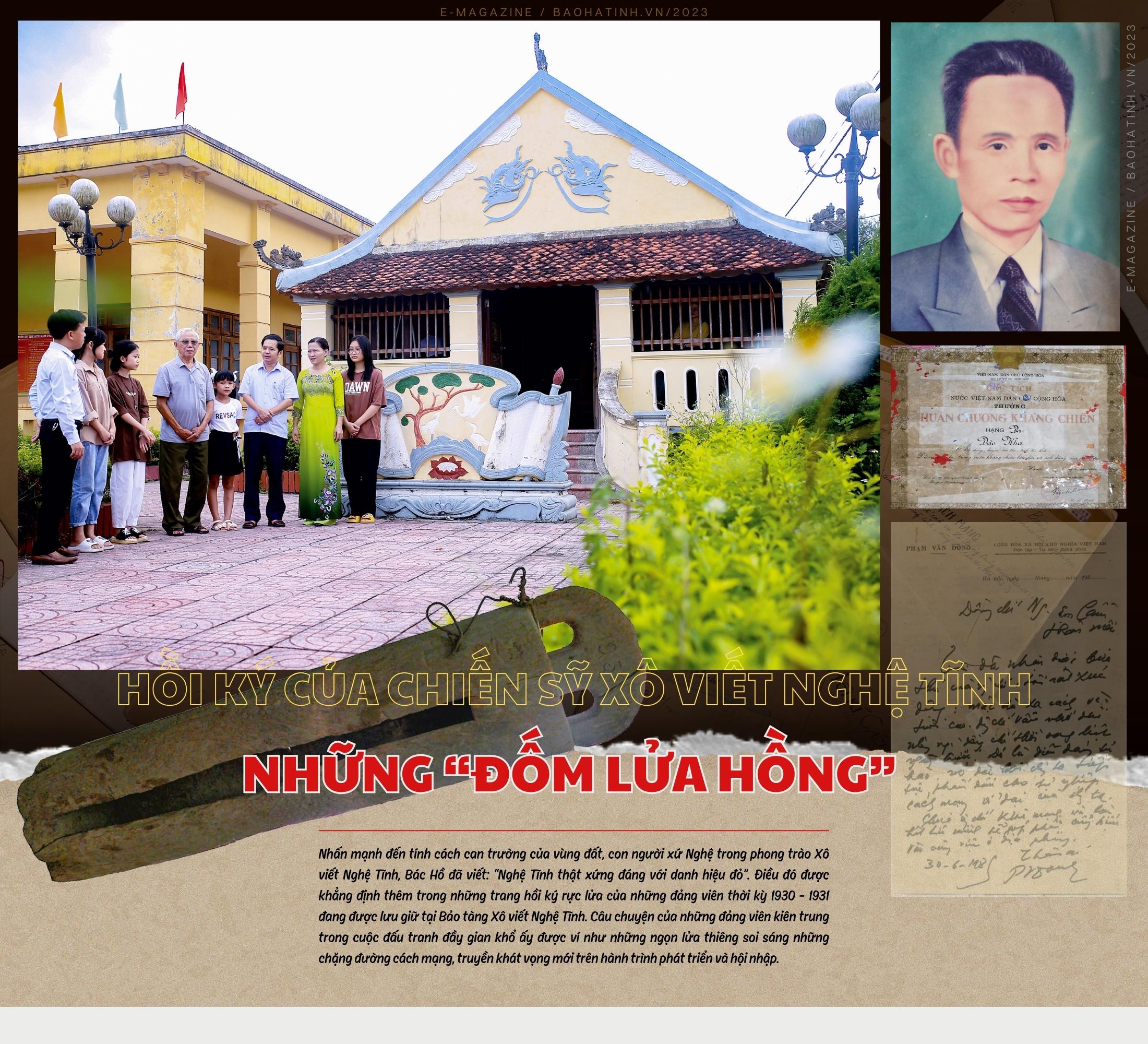
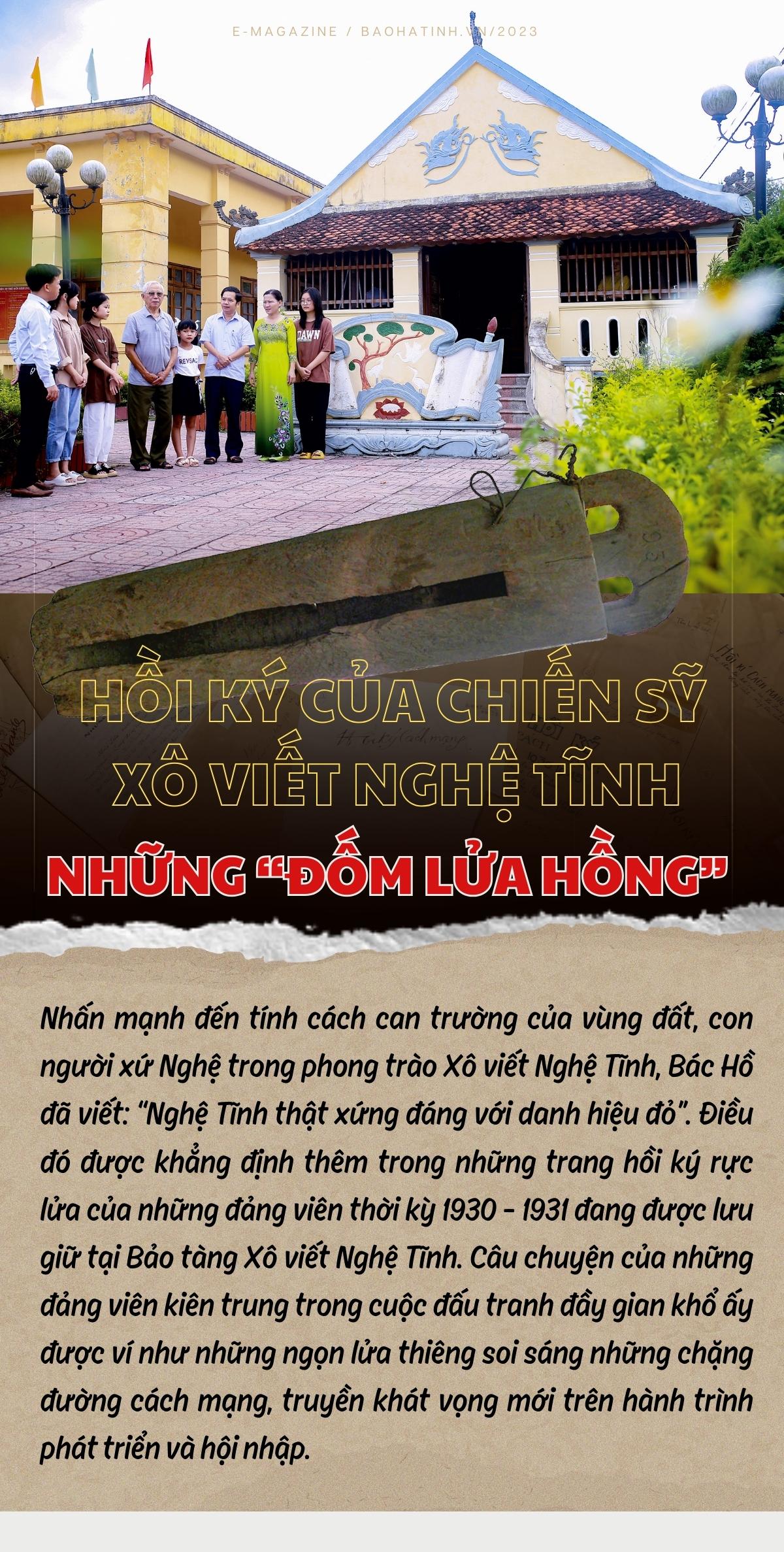
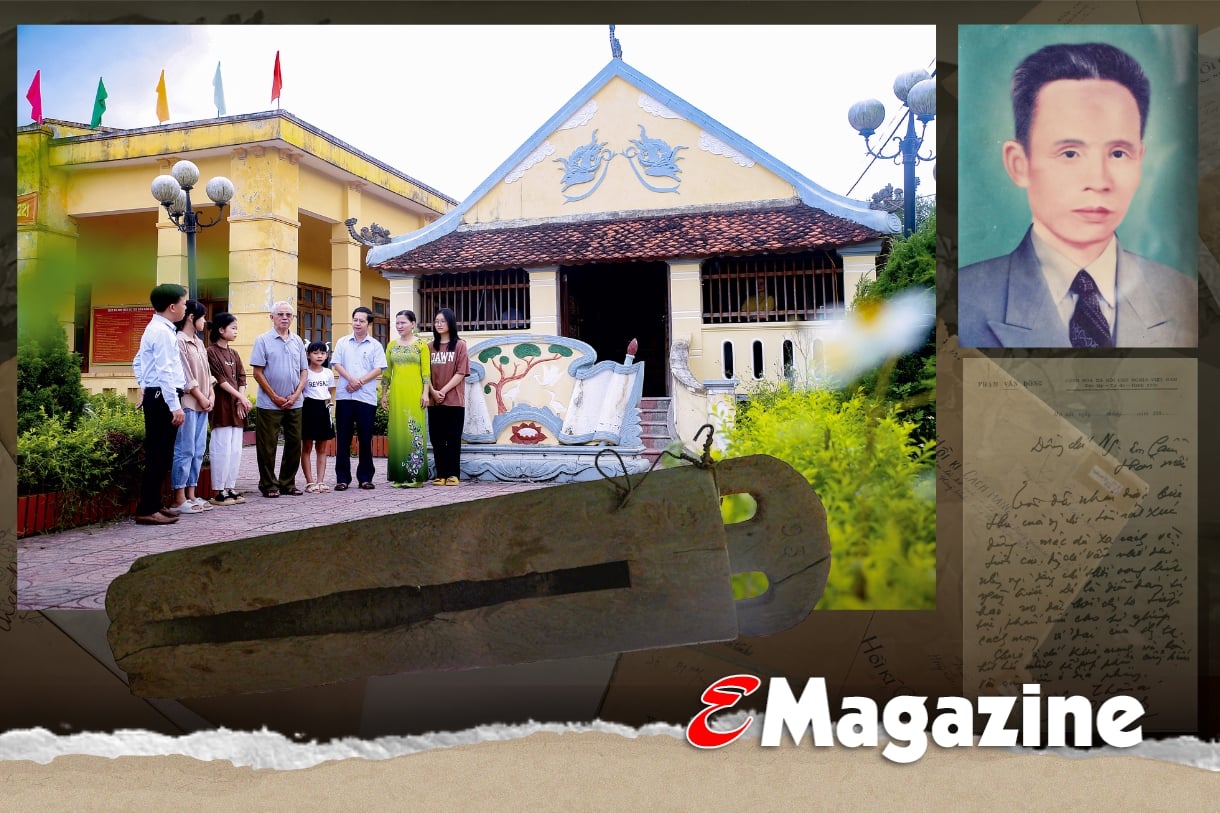



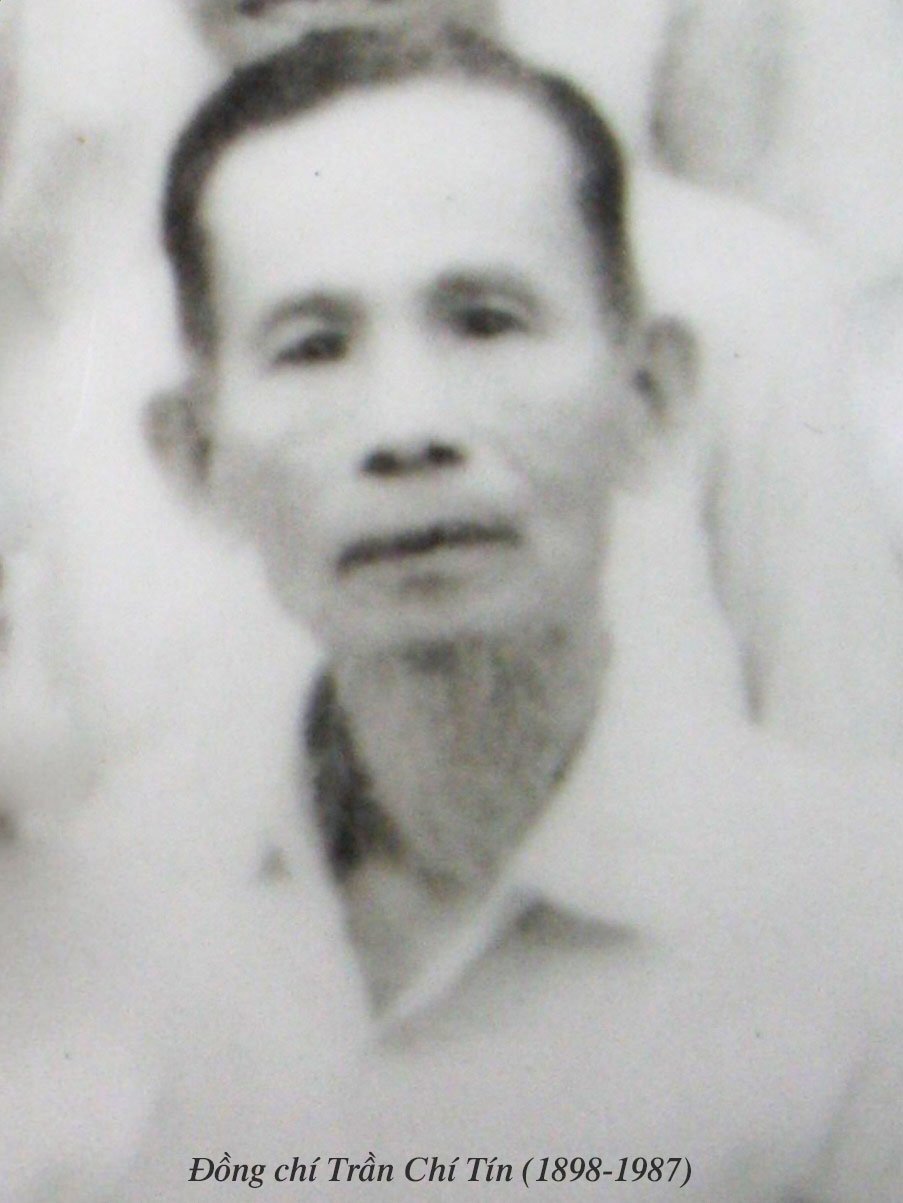
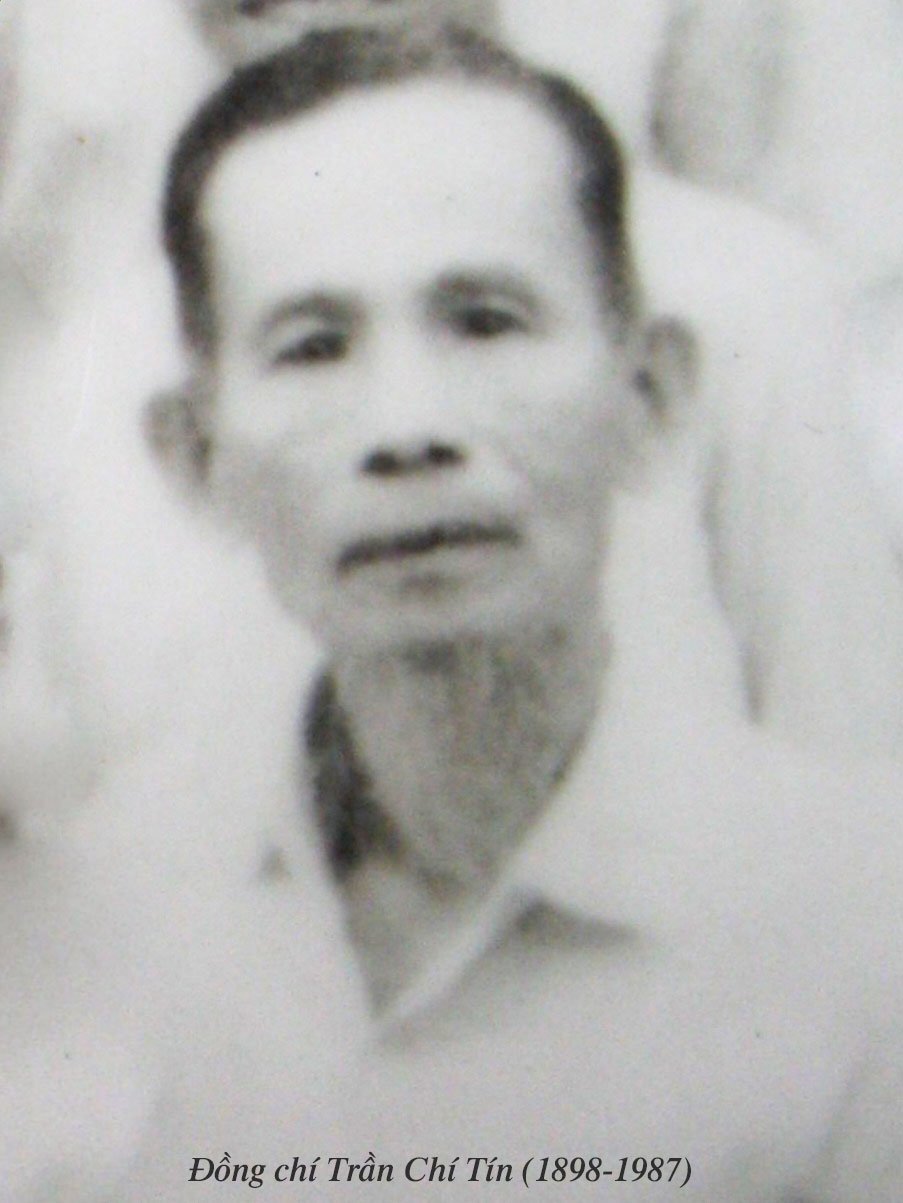
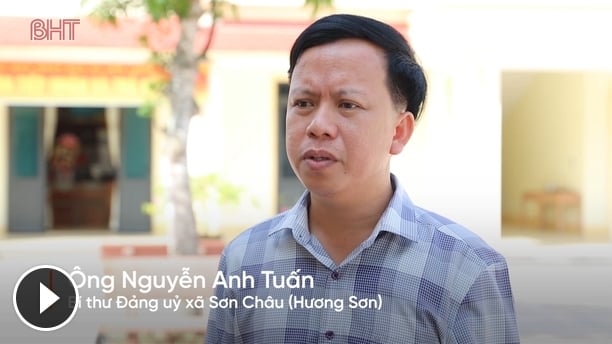

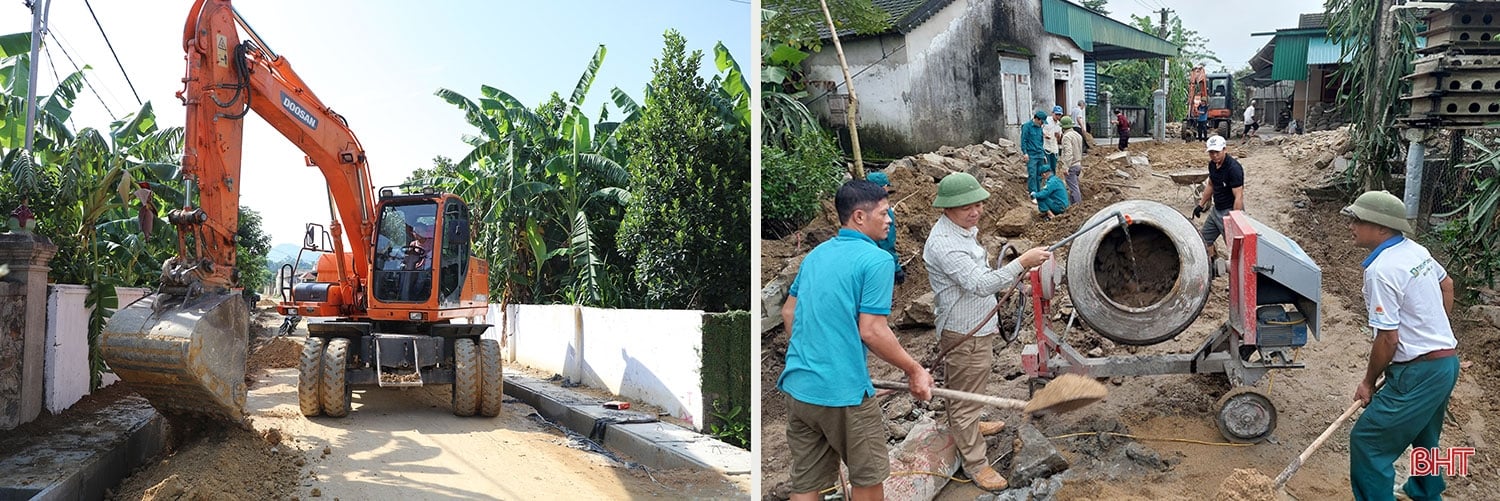
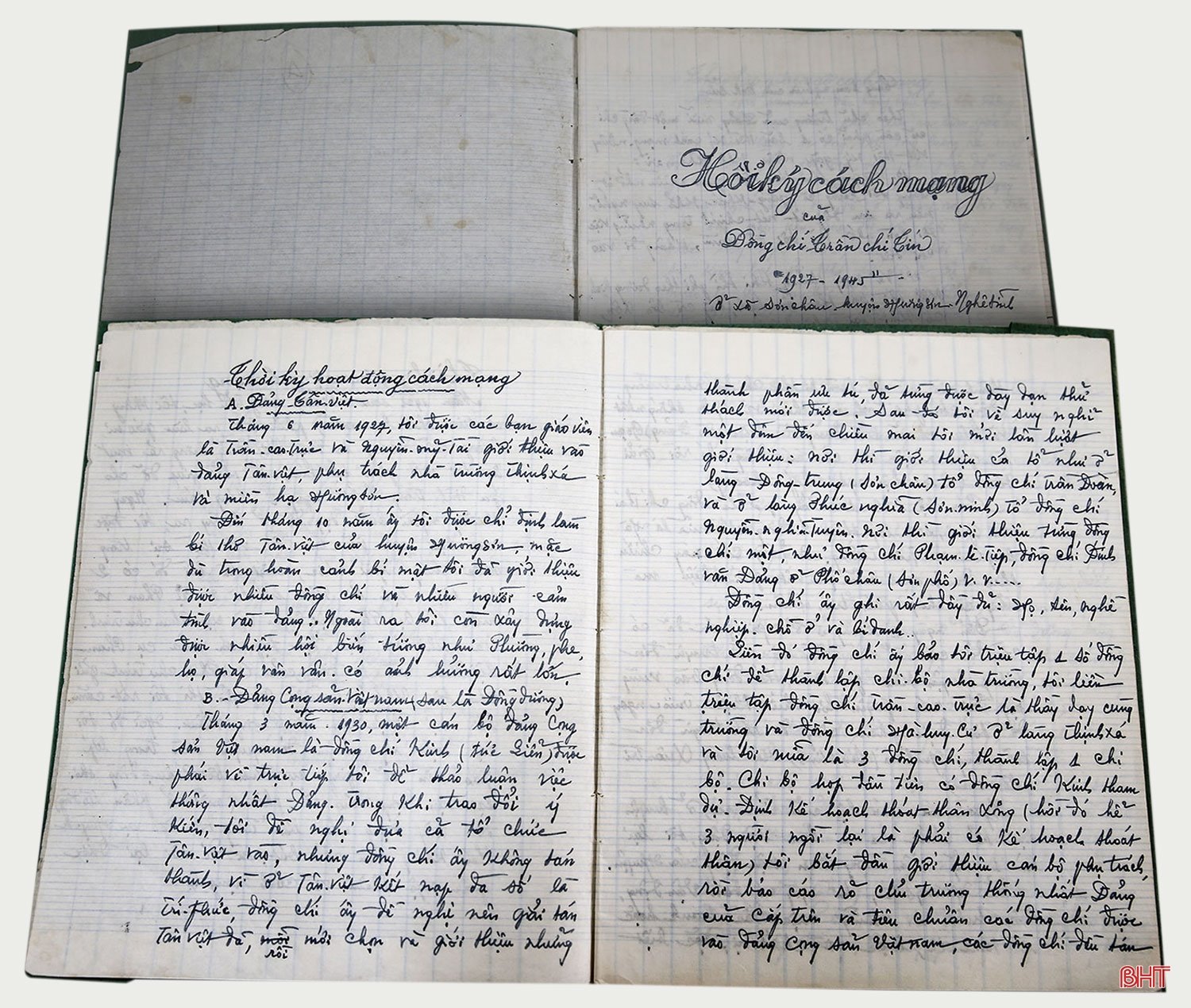

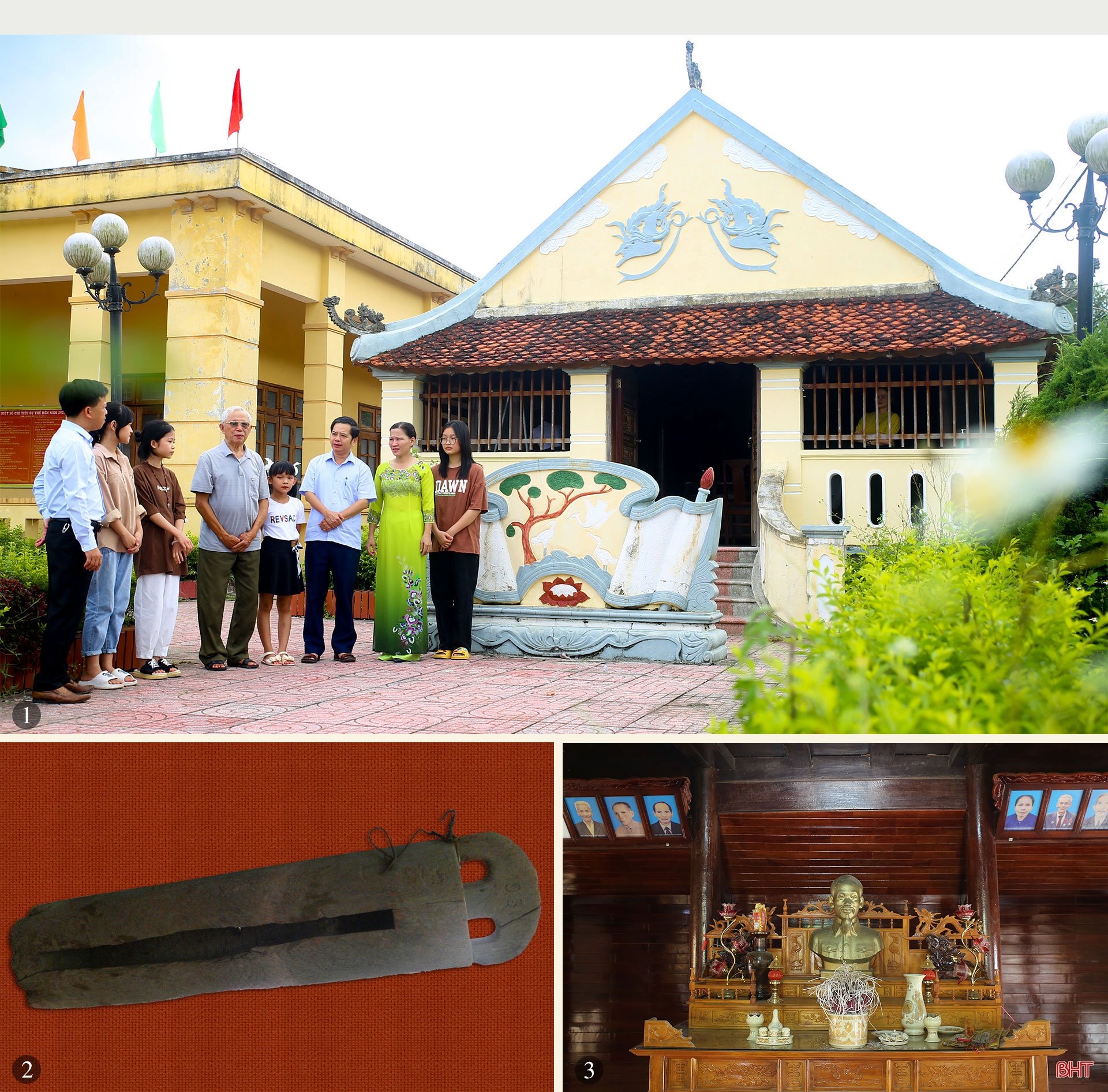
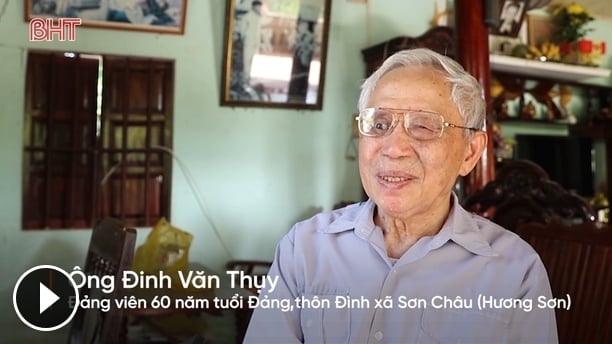
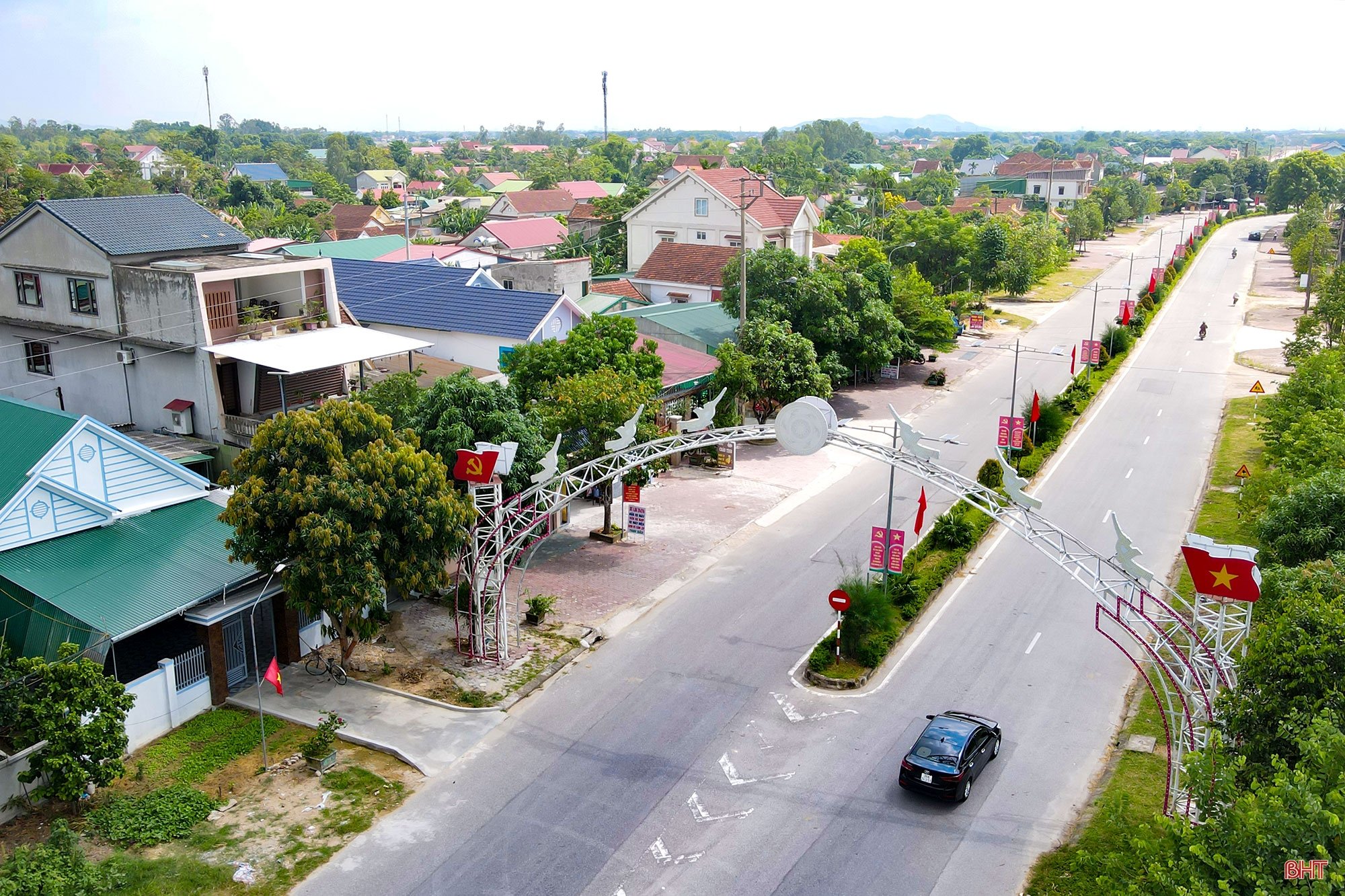
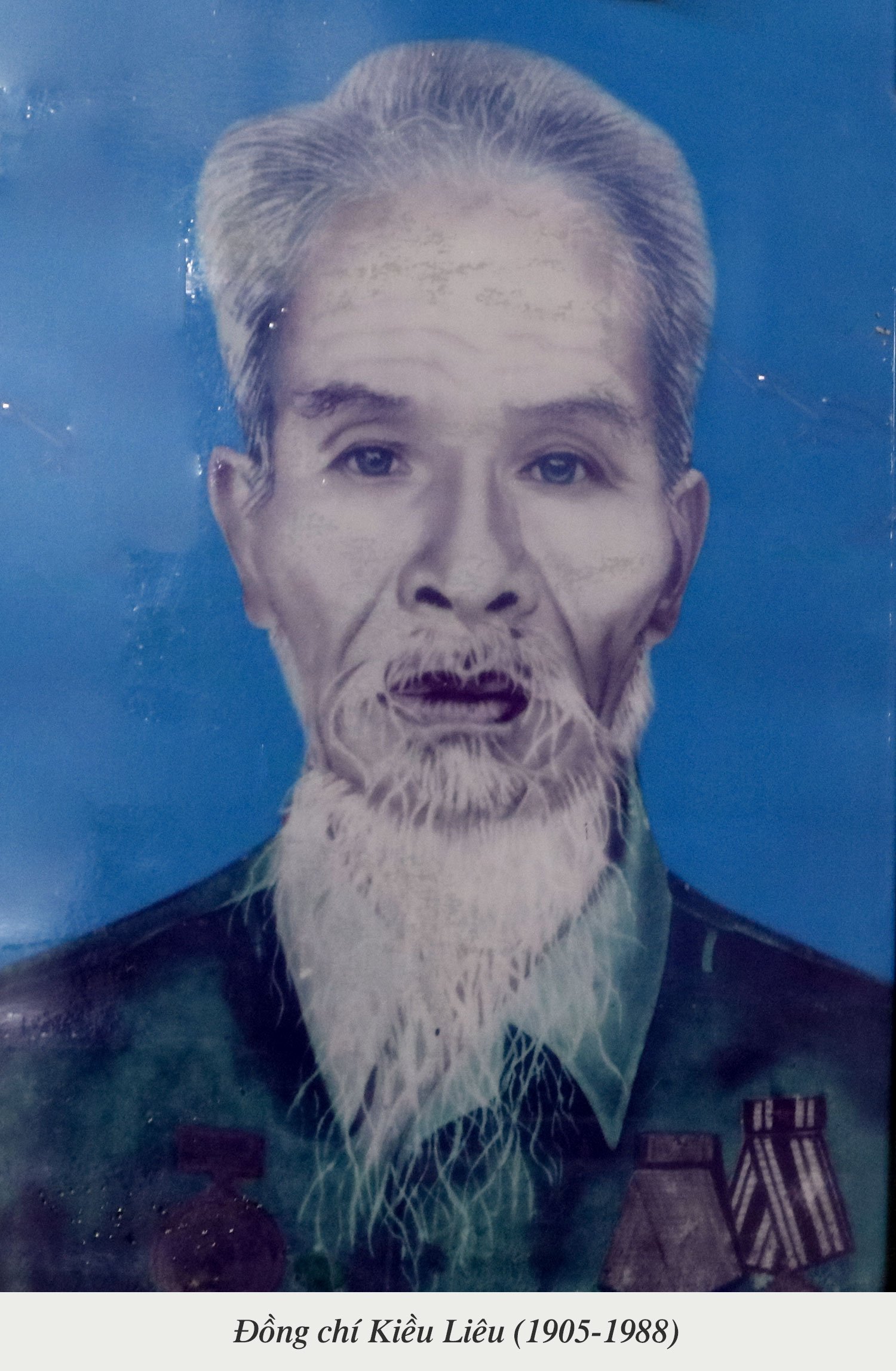

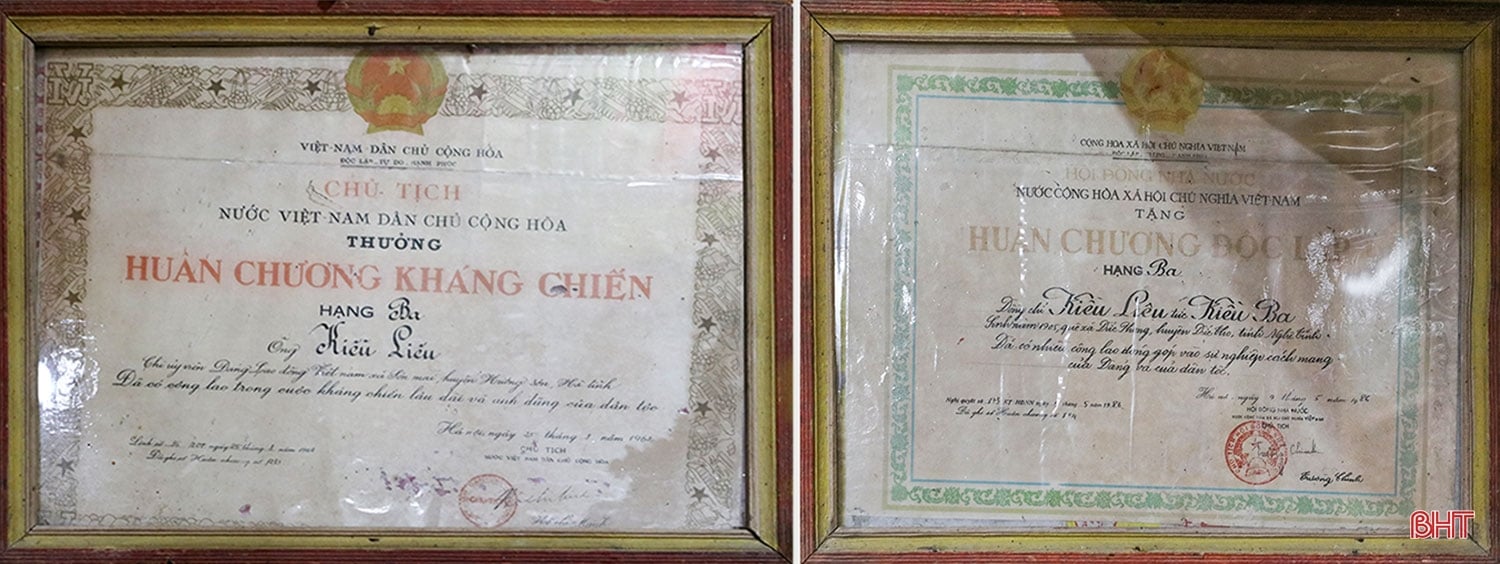
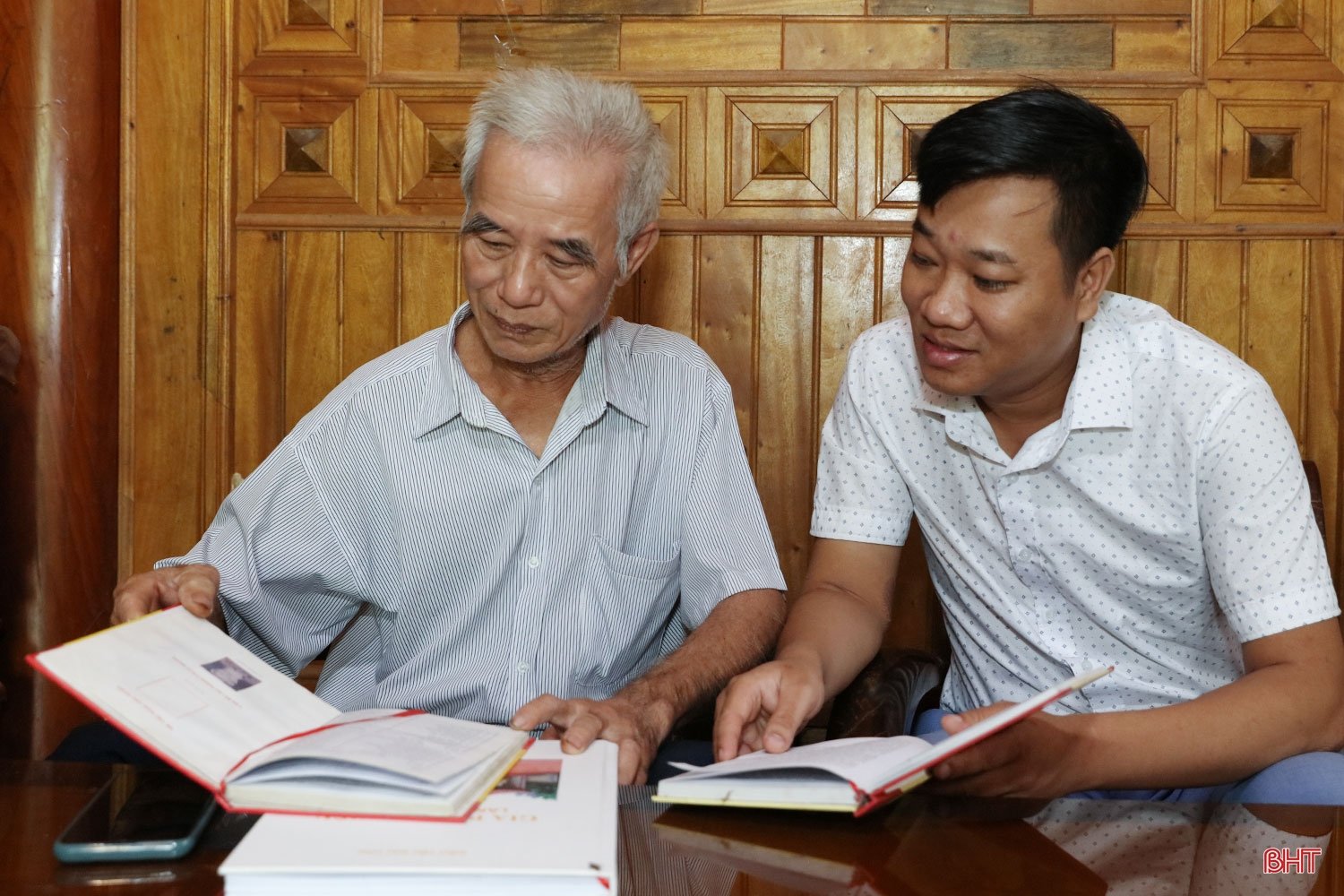

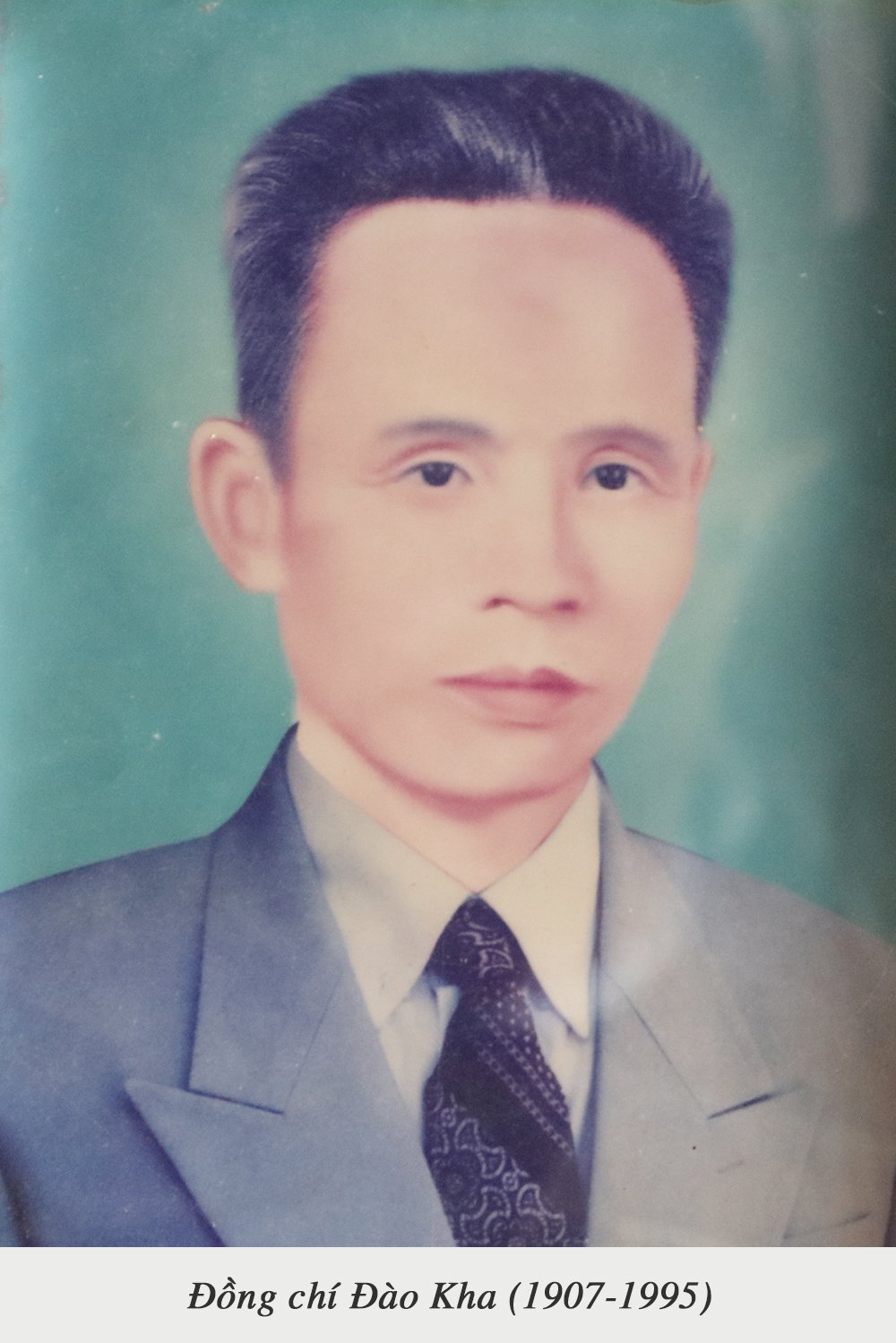

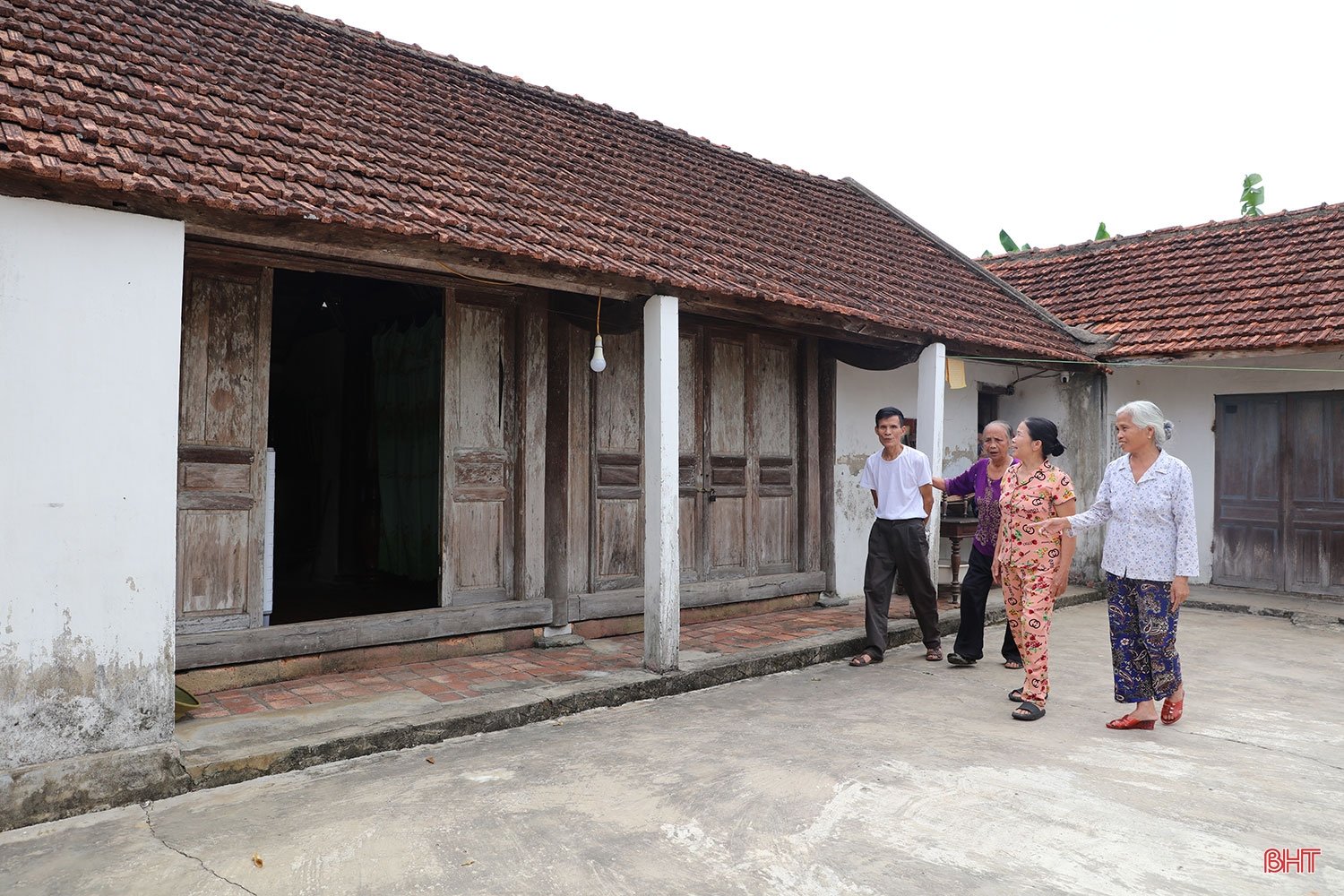
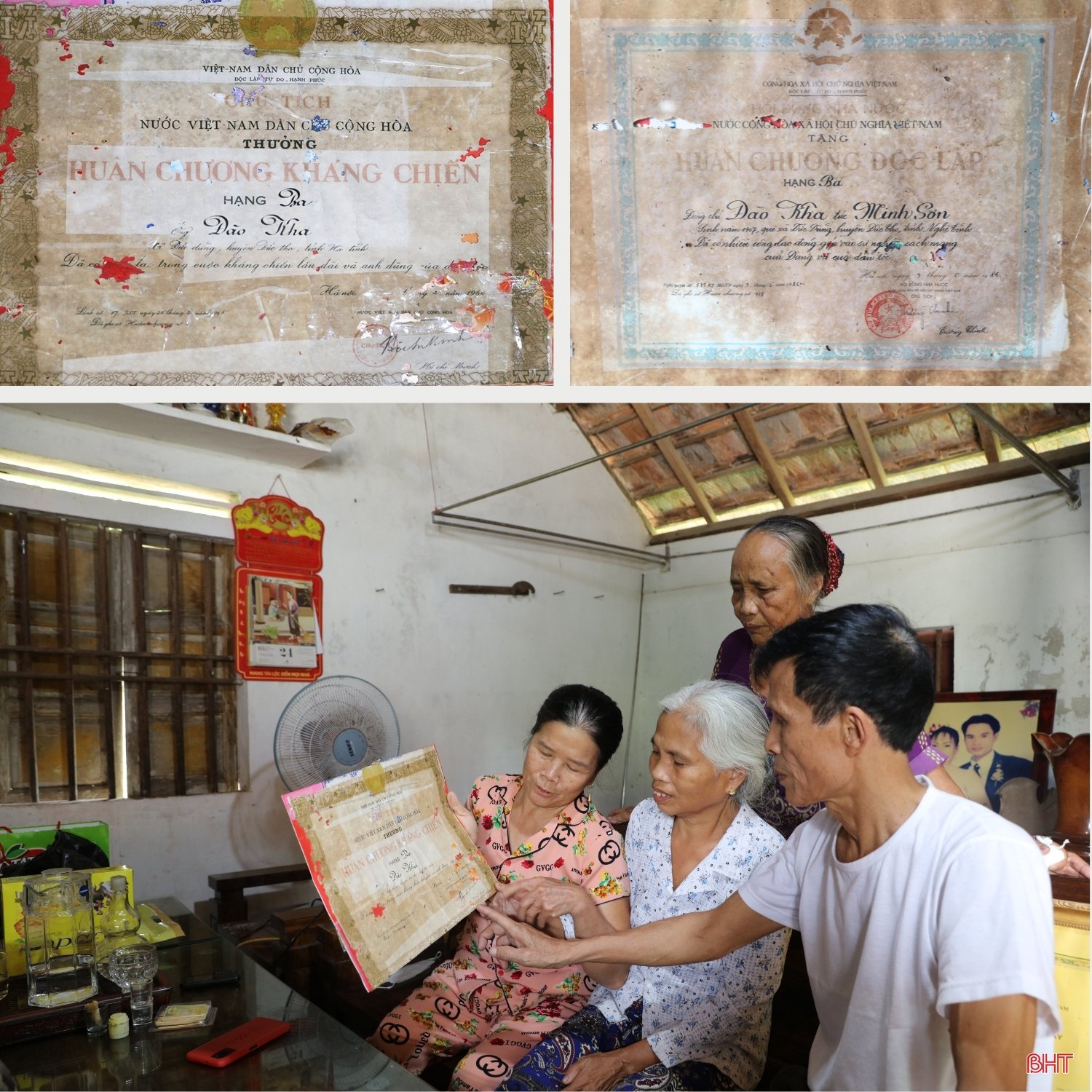
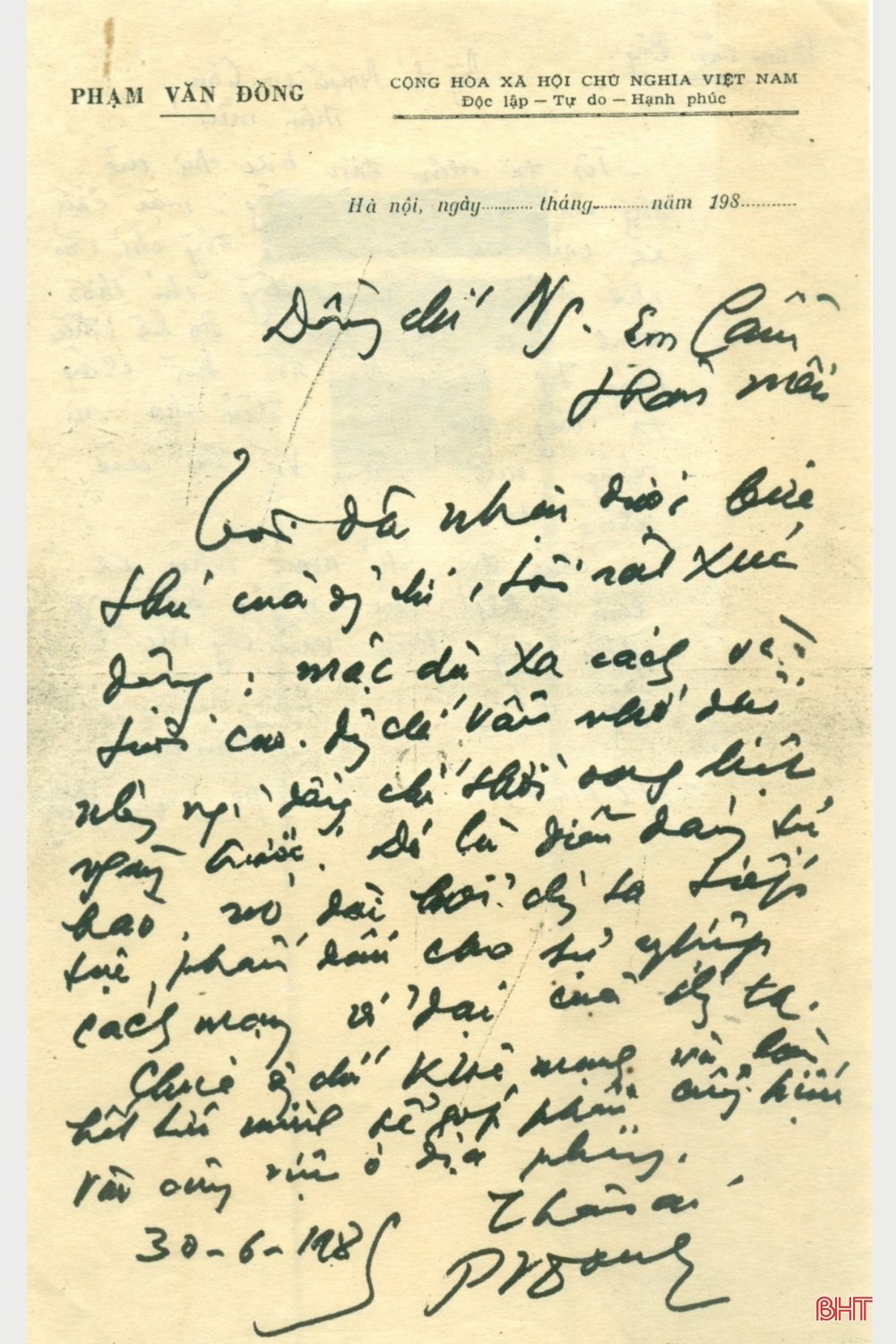
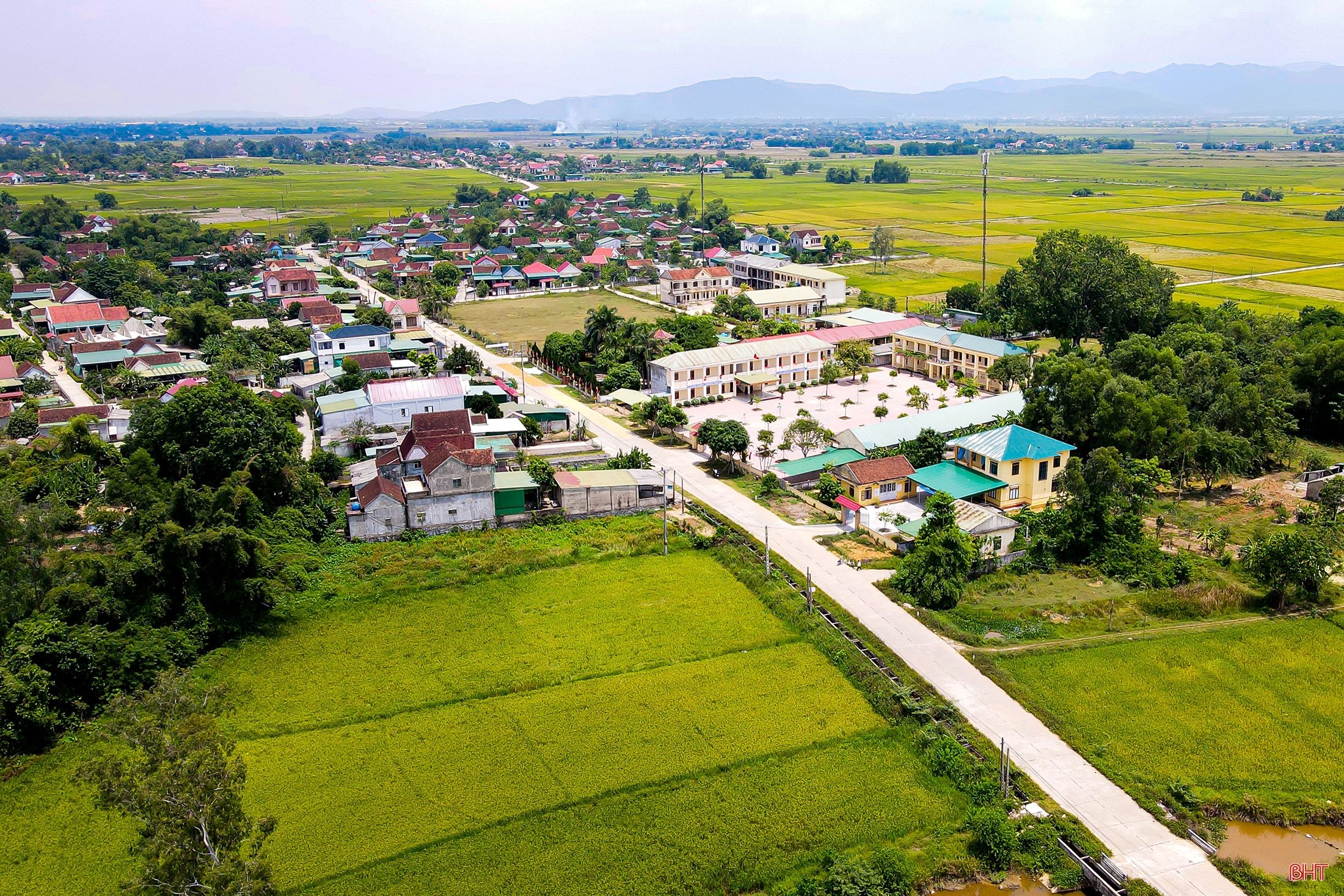

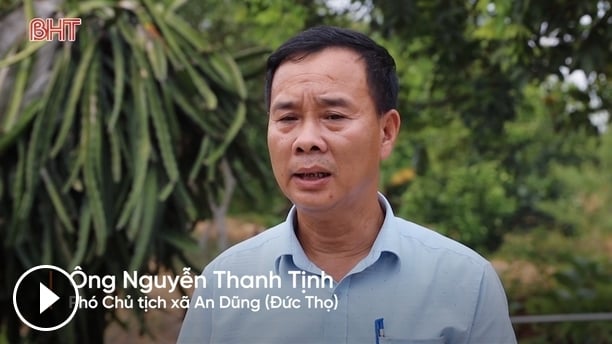




![[Photo] General Secretary To Lam attends the 80th Anniversary of the Cultural Sector's Traditional Day](https://vstatic.vietnam.vn/vietnam/resource/IMAGE/2025/8/23/7a88e6b58502490aa153adf8f0eec2b2)

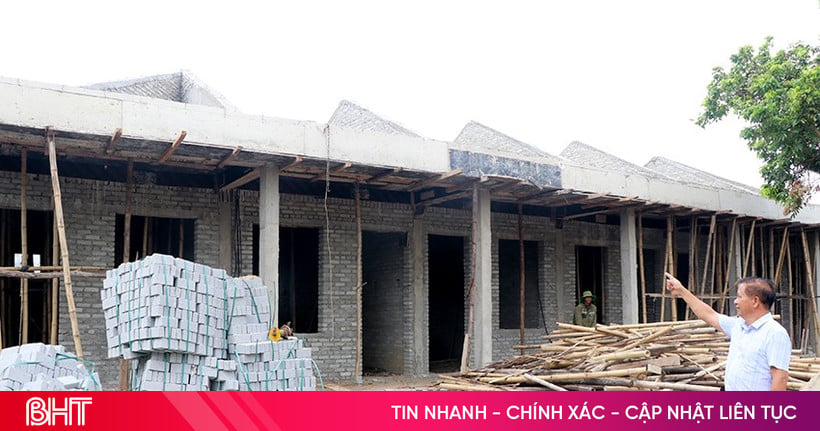

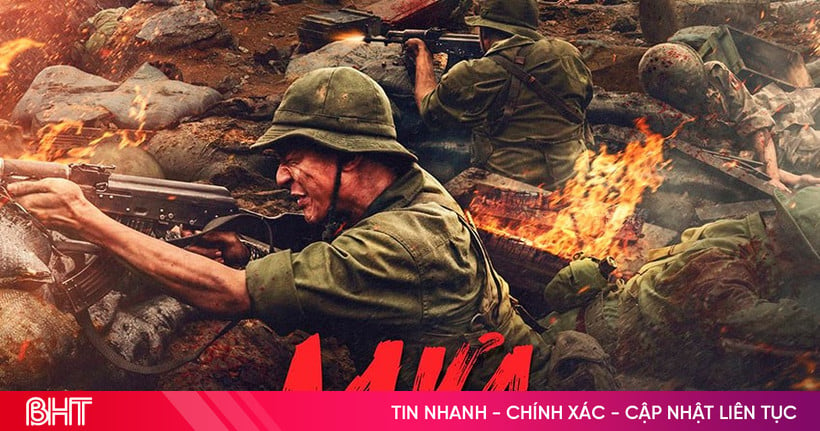
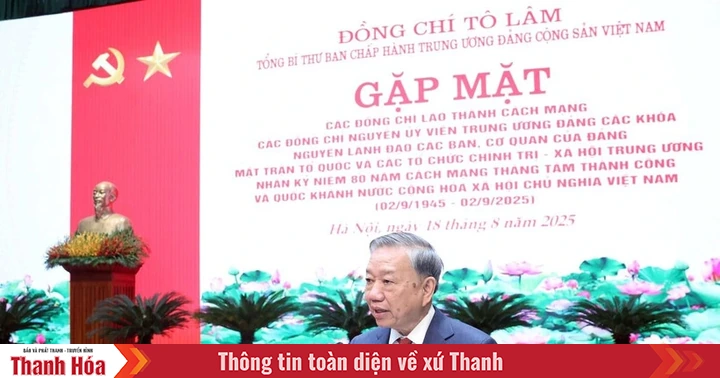


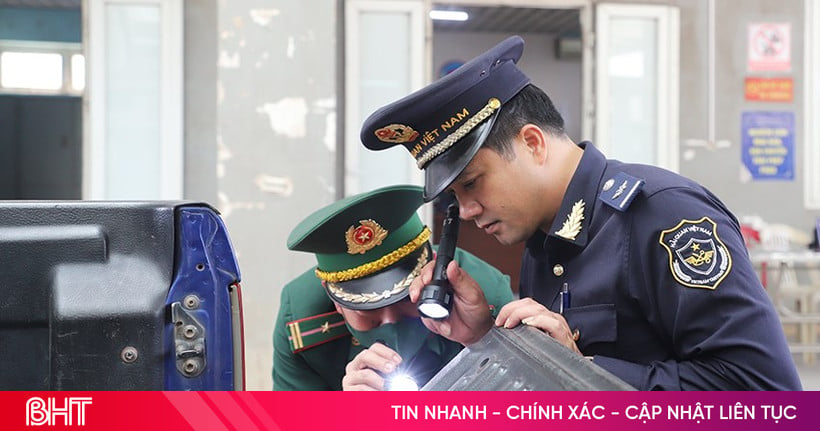

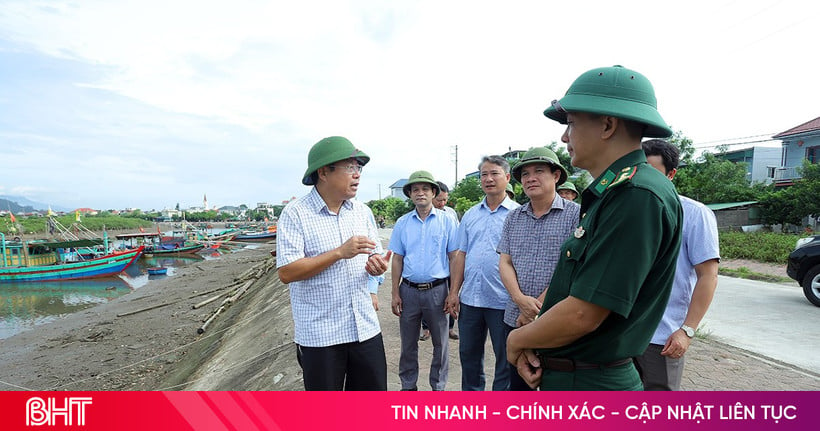
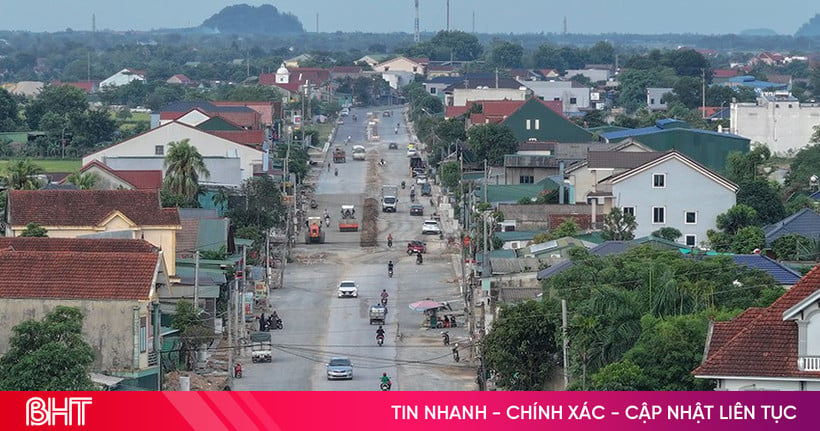



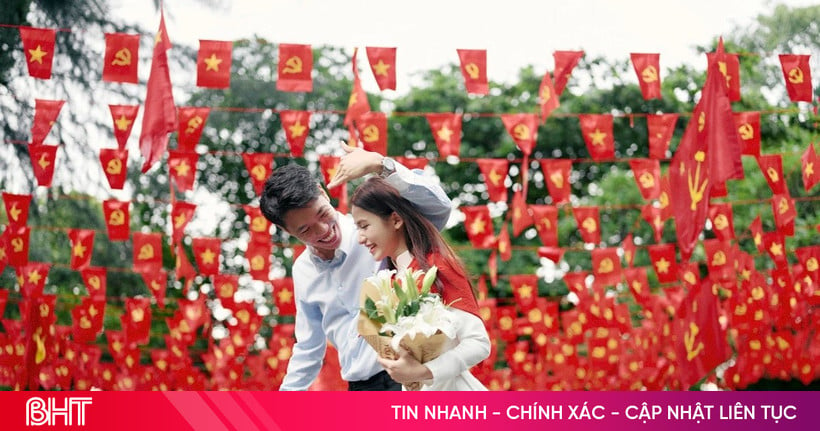





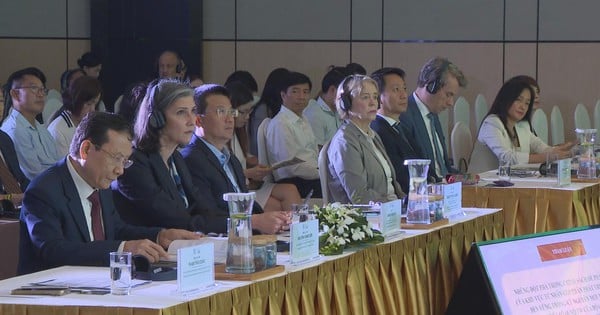
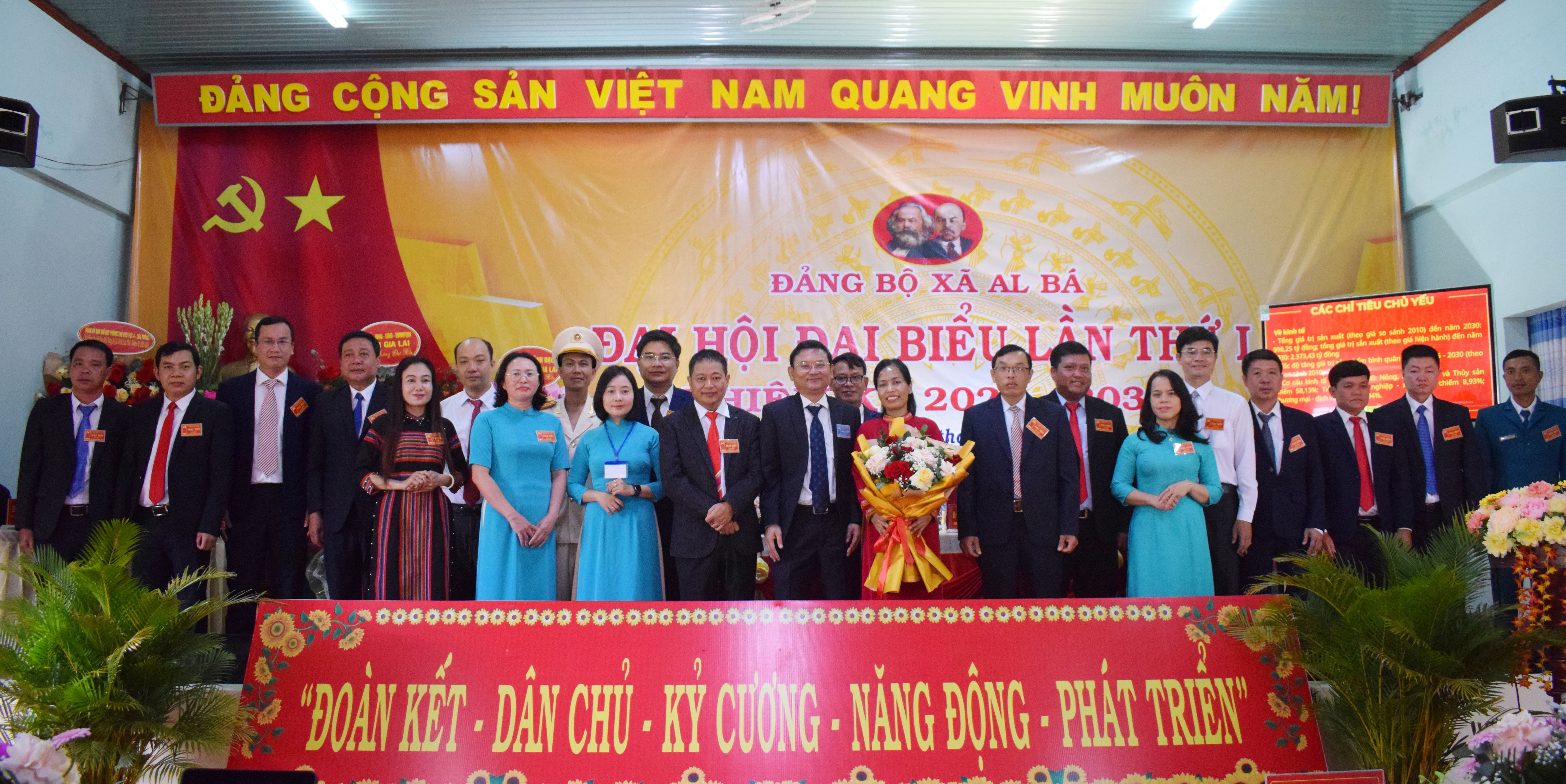
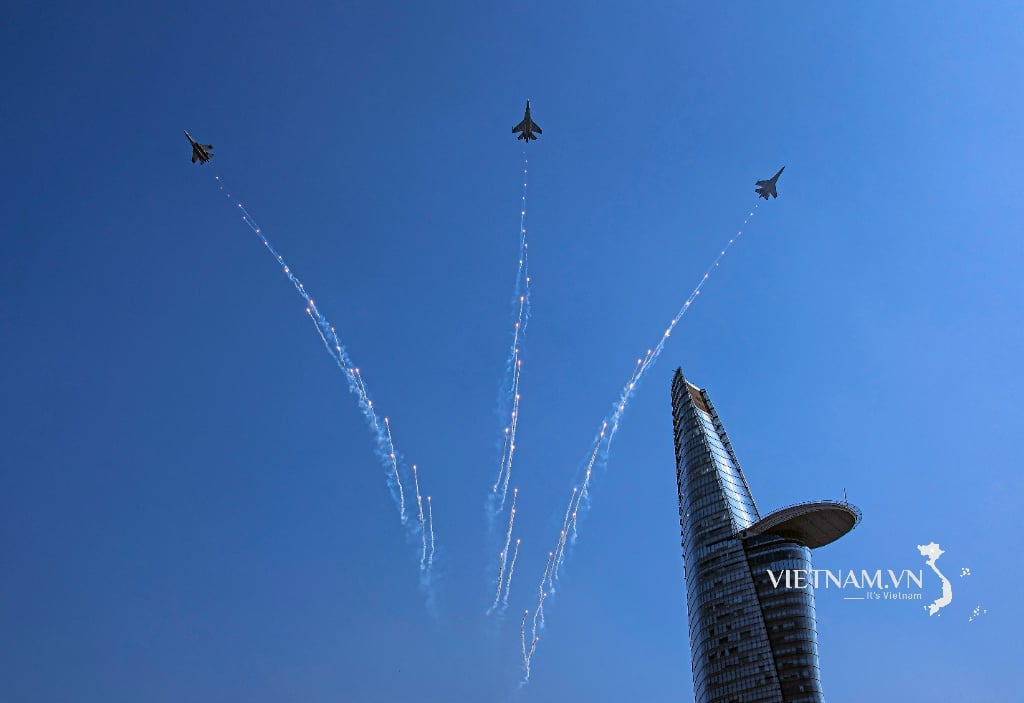
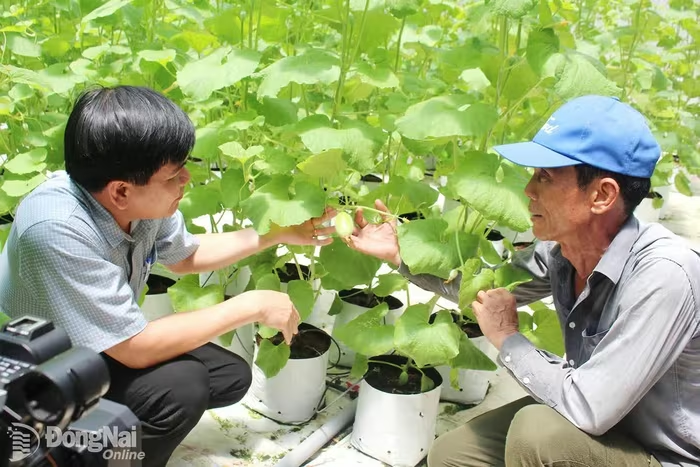












































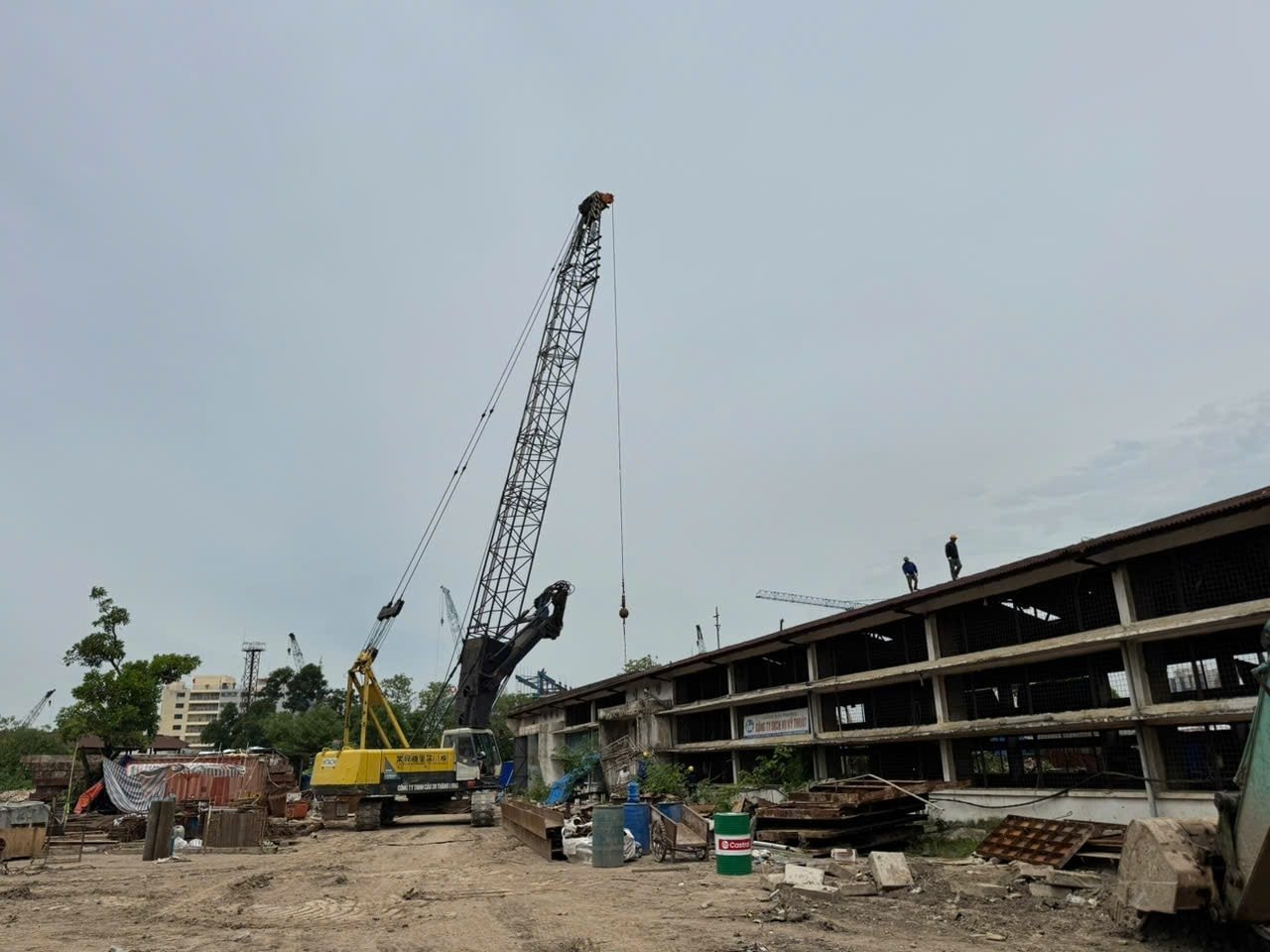

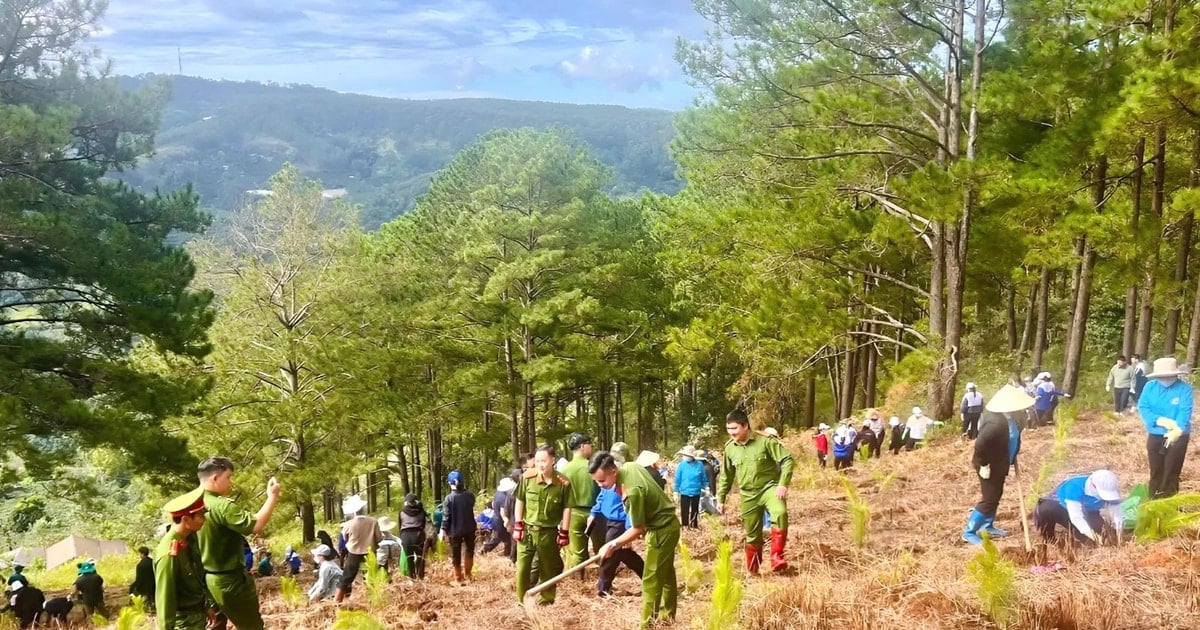

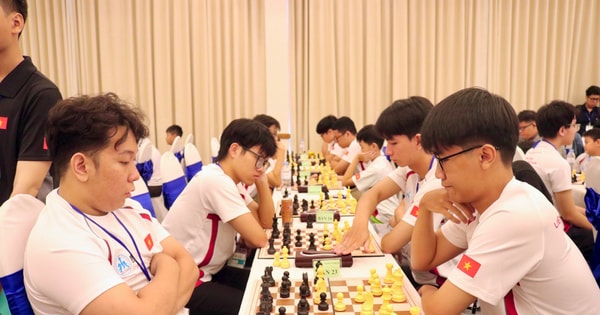

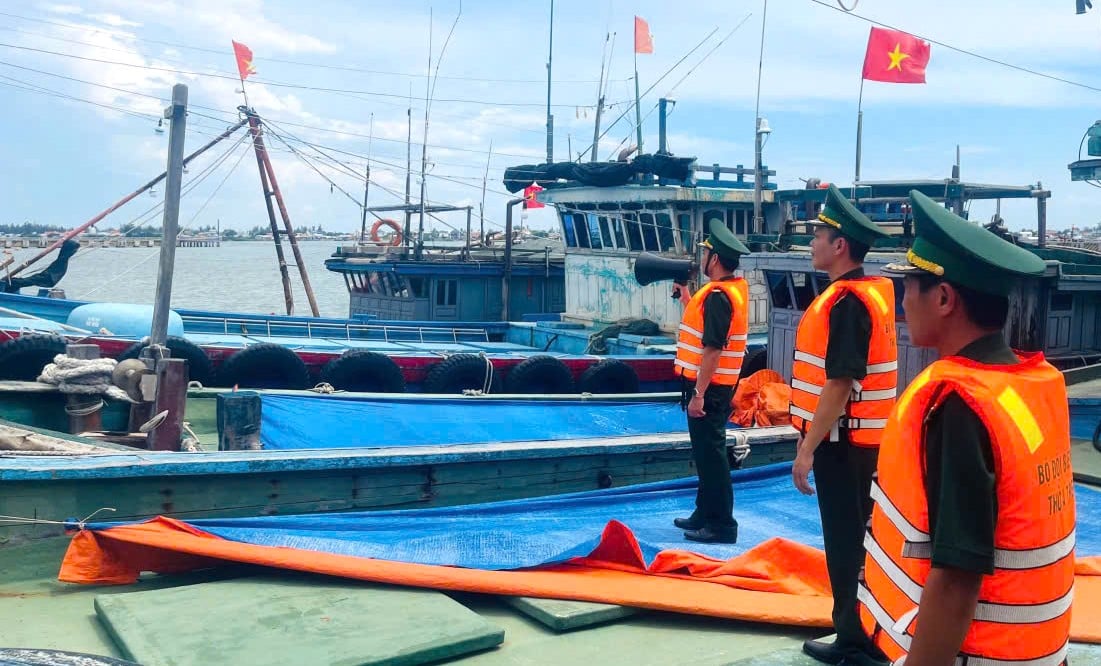

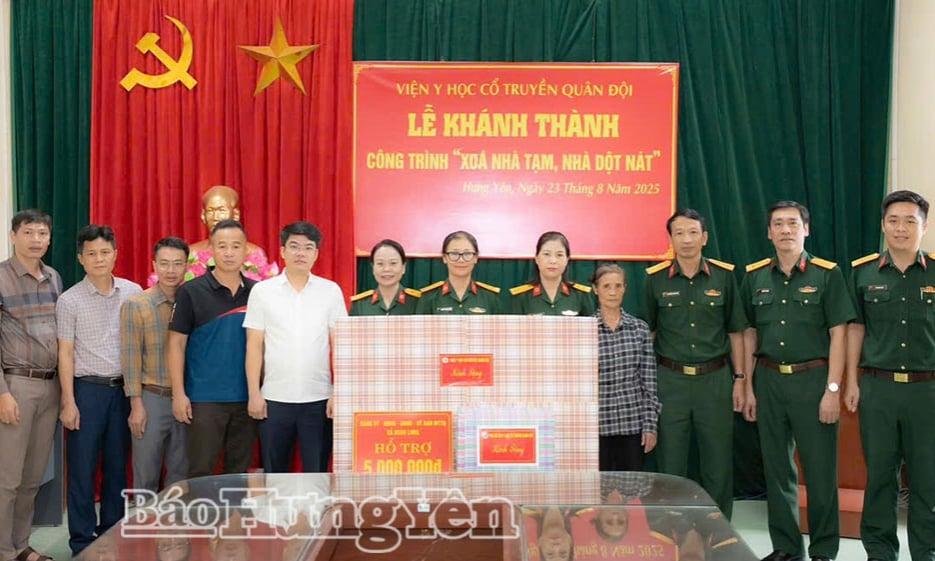

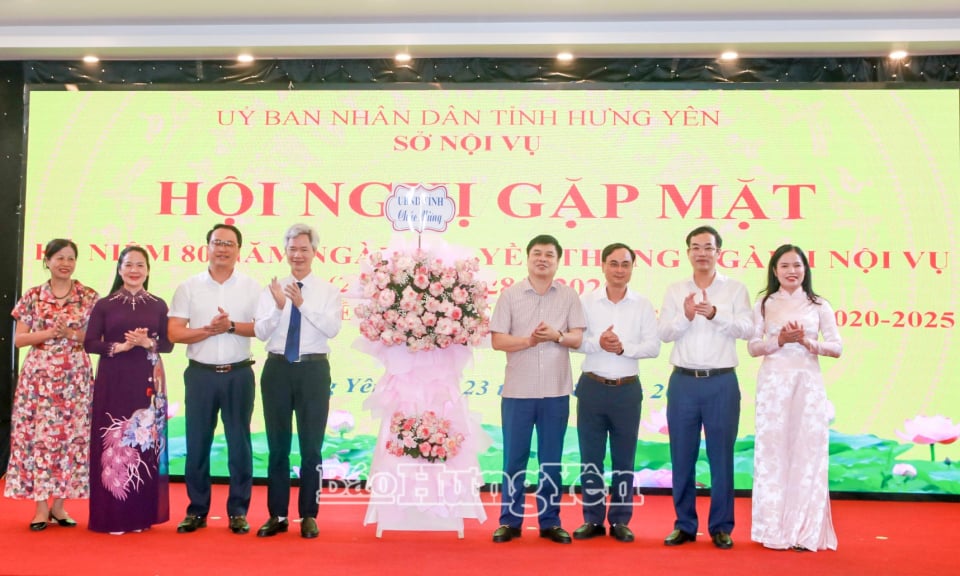















Comment (0)